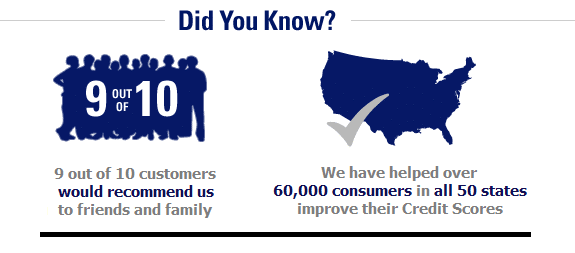7 Steps To Better Credit
It’s the question we get asked most often.
“What can I do to improve my credit score?”
And although the answer is almost always a long-winded speech about being responsible with your credit, there are a few things that you can start doing today to begin increasing your credit score.
But before we get started, let me just get one thing out of the way. The credit score is a gauge lenders use to determine the likelihood of a borrower becoming more than 90 days past due on a loan within the next 2 years.
Having said that, your goal is to make yourself look less likely to become past due. As this happens, your credit score will begin to increase.
So without further delay, here are the 7 actions you can take right now to improve your credit scores.
1. Pay Your Bills On-Time
Even if you have had late payments in your past, try to string together 6 months of perfect payment history and you’ll be surprised by how much your credit scores improve.
Show lenders that you’ve turned the corner and become a habitually punctual borrower. Your credit score will be rewarded.
2. Pay Down Your Credit Cards
Withhold 10% of every one of your paychecks and use the money to pay down your credit card debt. You’ll be surprised how much of a dent you can make in your credit card balances.
Having high balances on your credit cards makes you look like you are living off your credit and can’t afford to live off your income. This puts you in a high-risk category. Paying your balances down to a 20% utilization rate (balance = 20% of the credit limit) will show lenders that you are fiscally responsible and can live within your means. As your credit card balances decrease, your credit score will rise.
3. Don’t Close Old Accounts.
This is simple, 15% of your credit score is the average age of your open accounts. Closing old accounts shorten your length of history and decrease your credit scores. So keep your old credit cards active and open, use them every 3 months to buy a pack of gum, and pay the balances off at the end of the month. You don’t want the credit card company closing your account due to inactivity.
4. Stop Checking Your Credit
Every time you apply for an extension of credit, an inquiry appears on your credit report and lowers your credit score. This is done to stop you from acquiring too much credit too fast. This brings us to our next point.
5. Build Credit Slowly
If lenders see that your getting too much credit at once, it makes you look like you’re running out of money and need new credit to live off. This makes you high risk. So build credit slowly and responsibly. How slowly, a maximum of one new account every 6-12 months.
6. Check Your Credit Reports
This should have probably been up at the top, but either way, you need to know what is being reported about you. Considering the most recent FTC report from January 2013 found that 21% of credit reports contain errors (over 50 million people), you should probably check all 3 of your reports to make sure that everything that is being reported about you is 100% accurate.
7. Repair Your Credit Report
If your credit report is displaying any information that looks questionable to you, contact the credit reporting agencies, creditors, and furnishers to have them verify and validate all of the questionable info. You would be surprised at how the most inconsequential detail can impact your credit score.
If you need help leveraging your consumer laws against the credit reporting agencies and creditors, let CreditFirm.net’s expert credit consultants fight on your side.












